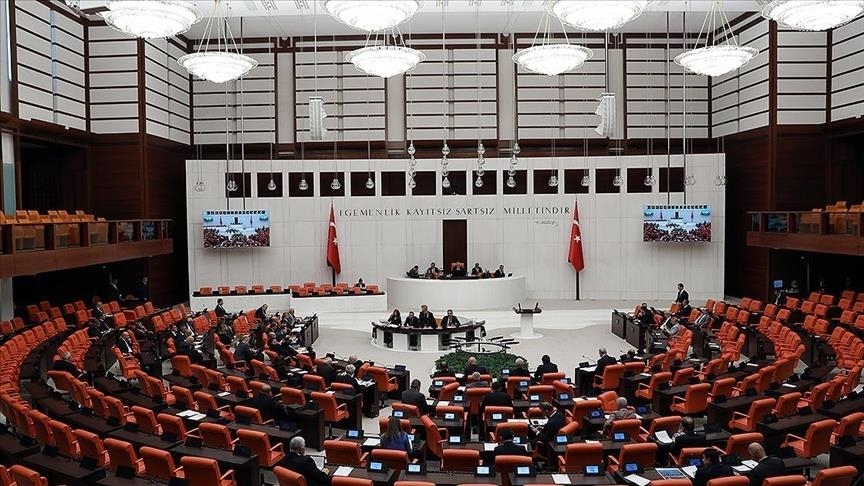Freed Thai Muslims Recount Detention "Hell"
They recalled being trapped under piles of other detainees when they were transported into custody following a demonstration in the country’s restive south, reported Agence France-Presse (AFP).
One man in his mid-twenties said he was tied with his hands behind his back and had "five layers" of other detainees above him in a truck.
"It was very hot and I was suffering a lot. I was shocked after I learned that 78 people died," said the man, declining to be identified.
At least 78 Muslims died after being either suffocated or crushed on October 26, in military trucks on their way to the detention facilities.
Amnesty International had urged the Thai government to impartially investigate the deaths.
Lucky to Breath
Another detainee lambasted the way Thai authorities dispersed the demonstration and transported the Muslims, who were fasting during the holy month of Ramadan.
"I am lucky to be able to breathe today. Think about it: I’m a small person and there were four to five people piled on me," said the man, also in his mid-twenties.
A third man, who declined to be named, burst into tears, recounting their detention ordeal.
"Can you imagine being laid down on the floor and there are a lot of people on top of you? You can’t even move. You can’t even do anything."
The three men, interviewed by AFP in Narathiwat province, were among more than 1,100 Muslims freed by the Thai army from six different sites after being held since Monday.
Tearful Reunions
During a brief respite in the monsoon rains earlier Saturday, 231 detainees left an army base where they had been held in Pattani province.
They boarded four buses that took many of them to Narathiwat for tearful reunions with relatives.
"I was terribly concerned in the past six days. I could not sleep and was worried but now I’ve seen them again. I feel relieved," an elderly man, Samsudint Yo Tanyong, said after seeing his son and three nephews.
He asserted that the men rarely went out but last Monday they had joined others seeking the release of six men accused of passing guns to separatists.
Of the detainees leaving the base in Pattani, some showed black eyes, cuts and bruises. Two could only walk with the help of friends.
The men, from teens to seniors, appeared in high spirits but when one saw a driver he recognized he broke into tears and rushed over to embrace him.
"I’m glad I could go home," a young detainee from the border town of Sungai Kolok told reporters.
"They treated us well for the past two days but before that we slept in water."
Continued Harassment
Freed Muslim detainees disembark from a bus as family members await outside the community hall in Narathiwat. (AFP)
About two dozen soldiers, some armed with assault rifles and pistols, watched
the departure and made it difficult for the men to talk freely with reporters.
The army soldiers filmed detainees who spoke with journalists.
Troops urged the men to clap their hands and chant.
The detainees wore T-shirts given to them by the military.
Thai Prime Minister Thaksin Shinawatra said in his weekly radio address earlier Saturday that the detainees would receive money and clothing "since their shirts were stripped off during the arrests".
Relatives who had been waiting outside the base for days rushed home when they heard that the men would be freed.
An army statement issued at the camp said 1,178 detainees were released Saturday while another 113 remain under detention.
Among those still held, 76 were allegedly linked to violence in the Muslim-dominated south while the rest had failed drug tests or had criminal records, the statement said.
"(They) will be detained by the army under martial law provisions until Monday. After that they will be passed to police custody and police will take any legal action required," army spokesman Somkuan Saengtattaranetr told AFP.
Most of Thai Muslims live in the five southern provinces bordering Malaysia.
Pattani, Yala and Narathiwat are the only Muslim majority provinces in the majority-Buddhist kingdom.
Muslims in these provinces have long complained of discrimination in jobs and education and business opportunities.
The South was a rich Malay kingdom until it was overrun by the Buddhist kingdom of Siam in the late 16th century when it declared its full independence from its earlier status of semi-independence under the rule of the Thai kingdoms of Sukhothai and Ayutthaya.
In 1909, it was annexed by the Kingdom of Siam as part of a treaty negotiated with the British Empire.
Both Yala and Narathiwat were originally part of Pattani, but were split off and became provinces of their own.
There still exists a separatist movement in.
Former Malaysian Prime Minister Mahathir Mohamad urged Thailand to consider autonomy for its Muslim south, and called on separatist groups to drop their goal of independence.



